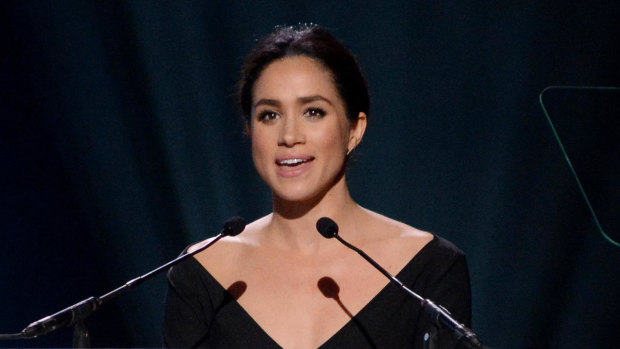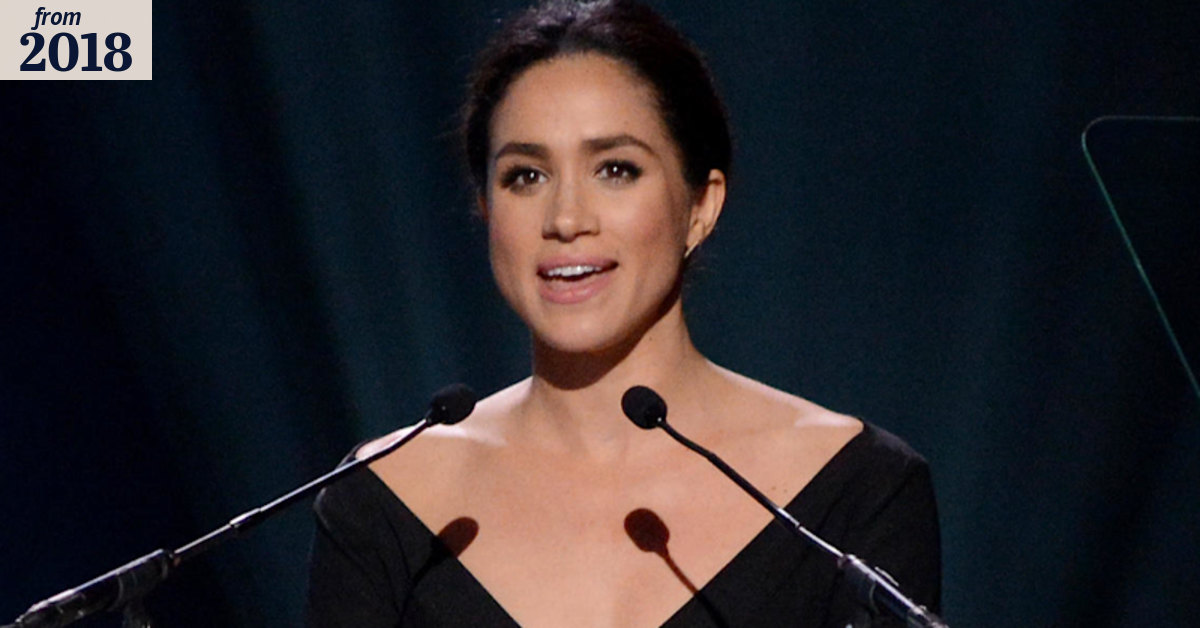When I was just eleven years old, I unknowingly and somehow accidentally became a female advocate. It was around the same time as the Beijing conference, so a little over twenty years ago, where in my hometown of Los Angeles a pivotal moment reshaped my notion of what is possible.
See, I had been in school watching a TV show in elementary school, and this commercial came on with the tagline for this dishwashing liquid and the tagline said, ‘Women all over America are fighting greasy pots and pans.’ Two boys from my class said, ‘Yeah, that’s where women belong, in the kitchen.’

Meghan Markle at the UN Women conference in 2015 where she made this speech.
I remember feeling shocked and angry and also just feeling so hurt; it just wasn’t right, and something needed to be done. So I went home and told my dad what had happened, and he encouraged me to write letters, so I did, to the most powerful people I could think of.
Loading
Now my eleven-year-old self worked out that if I really wanted someone to hear me, well then I should write a letter to the First Lady. So off I went, scribbling away to our First Lady at the time, Hillary Clinton. I also put pen to paper and I wrote a letter to my news source at the time, Linda Ellerbee, who hosted a kids news program, and then to powerhouse attorney Gloria Allred,
because even at eleven I wanted to cover all my bases. Finally I wrote to the soap manufacturer.
And a few weeks went by and to my surprise I received letters of encouragement from Hillary Clinton, from Linda Ellerbee, and from Gloria Allred. It was amazing. The kids news show, they sent a camera crew to my home to cover the story, and it was roughly a month later when the soap manufacturer, Procter & Gamble, changed the commercial for their Ivory Clear dishwashing liquid. They changed it from ‘Women all over America are fighting greasy pots and pans’ to ‘People all over America’. It was at that moment that I realized the magnitude of my actions. At the age of eleven I had created my small level of impact by standing up for equality.
Now, equality means that President Paul Kagame of Rwanda, whose country I recently visited as part of my learning mission with UN Women, it means that he is equal to the little girl in the Gihembe refugee camp who is dreaming about being president one day. Equality means that UN Secretary General Ban Ki-moon is equal to the young intern at the UN who is dreaming about shaking his hand. It means that a wife, it means that a wife is equal to her husband; a sister to her brother. Not better, not worse – they are equal.
UN Women, as you guys know, has defined the year 2030 as the expiration date for gender inequality. And here’s what’s staggering: the studies show that at the current rate, the elimination of gender inequality won’t be possible until 2095. That’s another eighty years from now. And when it comes to women’s political participation and leadership the percentage of female parliamentarians globally has only increased by 11 per cent since 1995.
Eleven per cent in twenty years? Come on. This has to change. Women make up more than half of the world’s population and potential, so it is neither just nor practical for their voices, for our voices, to go unheard at the highest levels of decision-making. The way that we change that, in my opinion, is to mobilize girls and women to see their value as leaders, and to support them in these efforts. To have leaders such as President Kagame of Rwanda continue to be a role model of a country which has a parliamentary system comprised of 64 per cent female leaders.
